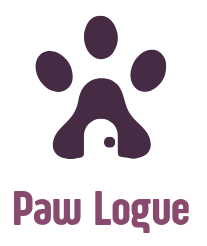Feeding a Doberman puppy isn’t just about filling a bowl with food—it’s about fueling the incredible growth and development these powerful dogs go through in their early months. Understanding what goes into their diet is critical to ensuring they grow into healthy, energetic, and strong adults.
If you’re a new Doberman puppy owner, or you’re just about to welcome a new pup into your home, this guide will help you learn how to nourish your Doberman the right way.

Check out other Puppy Diets
Doberman Puppy Growth: A Fast-Paced Journey
Dobermans are a medium-to-large dog breed, known for their sleek build, strength, and intelligence. As puppies, they grow incredibly fast. At 8 weeks, a typical Doberman weighs around 15-20 pounds. By 6 months, they can weigh anywhere from 50-70 pounds, depending on their sex and genetics. By the time they’re a year old, many Dobermans are approaching their full adult weight.
This rapid growth requires a diet packed with the right nutrients. Getting their diet wrong can lead to developmental issues like hip dysplasia or other bone and joint problems, not to mention digestive issues that can impact their overall health. That’s why it’s essential to start them off right.
The Right Nutrition for Doberman Puppies
Doberman puppies need a balanced diet that includes:
- Protein: The building block of muscle, tissue, and growth.
- Fats: Critical for energy and healthy skin and coat.
- Carbohydrates: Provide sustained energy and support their active lifestyle.
- Vitamins and minerals: For bone development, immune function, and overall health.
Why Protein Matters Most
Protein is the star player in your Doberman puppy’s diet. The Association of American Feed Control Officials (AAFCO) recommends a minimum of 22% protein for growing puppies, but for active breeds like Dobermans, aiming higher is often better.
The source of protein also matters. High-quality animal proteins—such as chicken, lamb, and fish—provide essential amino acids that are easier for puppies to digest and utilize than plant-based proteins. Look for dog foods where the first ingredient is an animal protein.
A Real-Life Example: Max the Doberman
Max, a 10-week-old Doberman puppy, was struggling to gain weight despite being active and eating regularly. After a review of his diet, it was found that the food he was on contained only 20% protein, most of it from plant sources. After switching to a diet that contained 28% animal-based protein from chicken and fish, Max’s energy levels increased, and he began to gain healthy muscle mass. Within just four weeks, his growth rate normalized, and his coat became shinier and softer.
Fats: The Key to Energy and a Shiny Coat
Fat is another crucial nutrient for your Doberman puppy’s diet. Dobermans are active, and puppies are even more so—they’re constantly burning energy as they play, explore, and grow. Fats provide a concentrated source of energy and help in the absorption of fat-soluble vitamins (like A, D, E, and K), which are essential for a puppy’s developing immune system.
The AAFCO recommends a minimum of 8% fat for growing puppies. However, active breeds like Dobermans can benefit from higher fat levels, especially from healthy sources like fish oil or chicken fat.
Carbohydrates: The Balance of Energy
Carbs may have a bad reputation, but they are necessary for providing your Doberman puppy with sustained energy throughout the day. Complex carbohydrates, such as those found in sweet potatoes, brown rice, and oats, are preferred over simple carbs like corn. Complex carbs release energy slowly, keeping your puppy’s energy levels stable between meals.
Vitamins and Minerals for Strong Bones
Dobermans are known for their athletic build, but without strong bones, they can’t maintain that powerful frame. The minerals calcium and phosphorus are critical for bone development, especially during their rapid growth phase. However, it’s important not to overdo it, as too much calcium can cause joint problems like hip dysplasia, especially in large breeds like Dobermans.
Vitamins like D3 help the body absorb calcium and phosphorus, while other vitamins, like E and C, are crucial for immune health.
Avoiding Nutritional Pitfalls: Buddy’s Case
Buddy, another Doberman puppy, was fed a high-calcium diet meant for larger breed puppies. While calcium is important, Buddy was getting too much, which resulted in uneven growth in his leg bones, causing joint pain. After switching him to a balanced puppy food formulated specifically for large breeds with controlled calcium levels, Buddy’s condition improved, and his bone development became more even.
Feeding Schedule: How Often Should You Feed a Doberman Puppy?
Puppies need to eat more frequently than adult dogs because their bodies are constantly burning calories as they grow. Here’s a general feeding schedule for Doberman puppies:
- 8-12 weeks: 4 meals a day
- 3-6 months: 3 meals a day
- 6-12 months: 2 meals a day
By the time they’re one year old, most Dobermans can transition to 2 meals a day.
How Much to Feed
The exact amount of food a Doberman puppy needs can vary based on the specific food you’re feeding, their activity level, and their individual metabolism. Always follow the feeding guidelines on the dog food packaging as a starting point, but be ready to adjust based on your puppy’s growth and condition.
Monitor their body condition regularly. You should be able to feel your puppy’s ribs without pressing hard, but they shouldn’t be visible. If your puppy is too thin or gaining weight too quickly, adjust the amount you’re feeding accordingly.
The Best Dog Foods for Doberman Puppies
When it comes to choosing a specific dog food for your Doberman puppy, there are several high-quality options that are known to provide the balanced nutrition needed for growth.
1. Royal Canin Doberman Puppy Formula
Royal Canin is a popular choice for many large-breed dog owners, and their breed-specific formulas are designed with specific needs in mind. Their Doberman Puppy Formula includes a balanced protein and fat content, controlled calcium and phosphorus levels for bone health, and antioxidants to support a developing immune system.
2. Hill’s Science Diet Large Breed Puppy
Hill’s Science Diet is another top contender. The large-breed puppy formula is made with high-quality protein to support muscle growth and healthy fat levels to meet the energy needs of an active puppy. It’s also fortified with a precise balance of vitamins and minerals, including calcium and phosphorus for bone development.
3. Blue Buffalo Life Protection Formula Large Breed Puppy
Blue Buffalo’s Life Protection Formula offers real chicken as the first ingredient and includes wholesome grains like brown rice and oatmeal for energy. The formula also contains a blend of vitamins, minerals, and antioxidants known as “LifeSource Bits,” which help support your puppy’s immune system during its critical early months.
4. Wellness Core Large Breed Puppy
Wellness Core focuses on high-protein, grain-free nutrition, which can be a good choice for active puppies. The large-breed puppy formula includes deboned chicken, turkey meal, and salmon oil for a rich supply of omega fatty acids that support brain development, eye health, and coat quality.
5. Orijen Puppy Large
Orijen is known for its biologically appropriate diets, made from fresh, regional ingredients. Their Puppy Large formula is rich in protein, featuring free-run chicken and turkey, wild-caught fish, and cage-free eggs. It also has a balanced fat profile to support the high energy needs of a growing Doberman puppy.
Supplements: Do They Need Them?
With a high-quality puppy food, your Doberman should get all the nutrients they need from their diet. However, some owners consider supplements to further support their puppy’s development.
- Fish Oil: Rich in omega-3 fatty acids, fish oil can help support brain development, immune health, and a shiny coat.
- Glucosamine and Chondroitin: These are natural compounds found in healthy joints, and they may help prevent joint issues in large-breed dogs like Dobermans. Some puppy foods already contain these, but if not, a supplement might be worth considering.
- Probiotics: If your puppy has digestive issues, probiotics can help maintain healthy gut bacteria, leading to better digestion and nutrient absorption.
Always consult with your vet before introducing supplements to your puppy’s diet.
Transitioning to Adult Dog Food
As your Doberman approaches their first birthday, it’s time to start thinking about transitioning them to adult dog food. Most Dobermans reach their full height around 12-18 months, though they may continue to fill out until they’re 2 years old.
Switching too early to adult food can result in nutritional deficiencies, while staying on puppy food for too long can lead to excessive weight gain. Around the 12-month mark, start gradually mixing adult food with your puppy food over the course of about 7-10 days, slowly increasing the ratio of adult food until the transition is complete.
Common Mistakes to Avoid in Your Doberman Puppy’s Diet
- Feeding table scraps: It may be tempting, but feeding your puppy human food can lead to digestive issues, weight gain, and bad habits.
- Skipping meals: Consistent feeding times are essential for proper digestion and energy levels.
- Overfeeding: Dobermans can be prone to obesity if overfed. Stick to the feeding guidelines on the dog food packaging and monitor their weight regularly.
- Not providing fresh water: Always make sure your Doberman puppy has access to clean, fresh water.
Conclusion: Fueling a Strong Future for Your Doberman
Feeding your Doberman puppy the right diet is one of the most important things you can do to set them up for a long, healthy life. By focusing on high-quality protein, healthy fats, controlled carbs, and the right vitamins and minerals, you can ensure that your Doberman grows into the powerful, athletic dog they’re meant to be.
Whether you’re feeding them a breed-specific formula or a high-protein puppy food, remember that every puppy is different, and what works for one Doberman might not work for another. Always consult with your vet to make sure your puppy is on the best diet for their unique needs.
Your Doberman puppy’s diet today is the foundation for a healthy tomorrow—so choose wisely and watch them thrive!
What’s the best raw food diet for Doberman puppies?
A raw food diet for Doberman puppies typically consists of raw meat (like chicken, turkey, or beef), bones, organ meats, and a small amount of vegetables and fruits. However, raw diets must be carefully balanced to ensure your puppy gets the right nutrients. It’s best to consult with a vet or canine nutritionist before starting a raw diet to avoid deficiencies and health risks.
Can I feed my Doberman puppy homemade meals?
Yes, but homemade meals for Doberman puppies require careful planning to ensure they meet all nutritional needs. Protein, fat, vitamins, and minerals must be in the correct ratios for proper growth. If you’re considering homemade meals, work with a vet to create a balanced diet plan, and consider supplementing with dog-specific vitamins to avoid deficiencies.
Is grain-free food good for Doberman puppies?
Grain-free food can be an option for Doberman puppies with grain sensitivities or allergies, but it’s not always necessary for every puppy. Some studies suggest that grain-free diets may contribute to heart disease in dogs, so it’s important to talk to your vet before switching to a grain-free formula. Many Dobermans do well on balanced diets that include healthy grains like brown rice or oats.
How do I know if my Doberman puppy is allergic to certain foods?
Common signs of food allergies in Doberman puppies include itching, skin rashes, ear infections, vomiting, diarrhea, and excessive licking. If you suspect a food allergy, consult your vet. They may recommend an elimination diet, where you slowly remove certain ingredients to identify the allergen.
What human foods are safe for Doberman puppies?
Some human foods that are safe for Doberman puppies in moderation include cooked chicken, carrots, apples (without seeds), and pumpkin. However, many human foods like chocolate, grapes, onions, garlic, and anything containing xylitol are toxic to dogs and should be avoided at all costs.
How can I prevent my Doberman puppy from overeating?
To prevent overeating, stick to a consistent feeding schedule and portion out meals based on your puppy’s age, weight, and activity level. Avoid free-feeding (leaving food out all day) and limit treats. Using slow-feeder bowls can also help control fast eaters who tend to gobble their food too quickly.
Can a poor diet cause behavioral problems in Doberman puppies?
Yes, a poor diet can impact your Doberman puppy’s behavior. Lack of proper nutrients, especially proteins and fats, can lead to lethargy, hyperactivity, or even aggression. Inconsistent energy levels, digestive discomfort, or food intolerances may also lead to irritability. A balanced, nutritious diet is essential for healthy behavior and mental development.
When should I switch my Doberman from puppy to adult food?
Most Dobermans should transition from puppy to adult food around 12 to 18 months of age. Large-breed dogs, like Dobermans, mature slower than smaller breeds, so they need the extra nutrients found in puppy food longer. Always consult your vet before making the switch, and transition gradually by mixing the new food with the old one over 7-10 days.
Are supplements necessary for Doberman puppy growth?
In most cases, a high-quality puppy food will provide all the nutrients your Doberman needs. However, supplements like fish oil for a shiny coat or glucosamine for joint health can be beneficial, especially if your vet identifies specific needs. Always consult your vet before adding supplements to avoid over-supplementation, which can lead to health issues.

